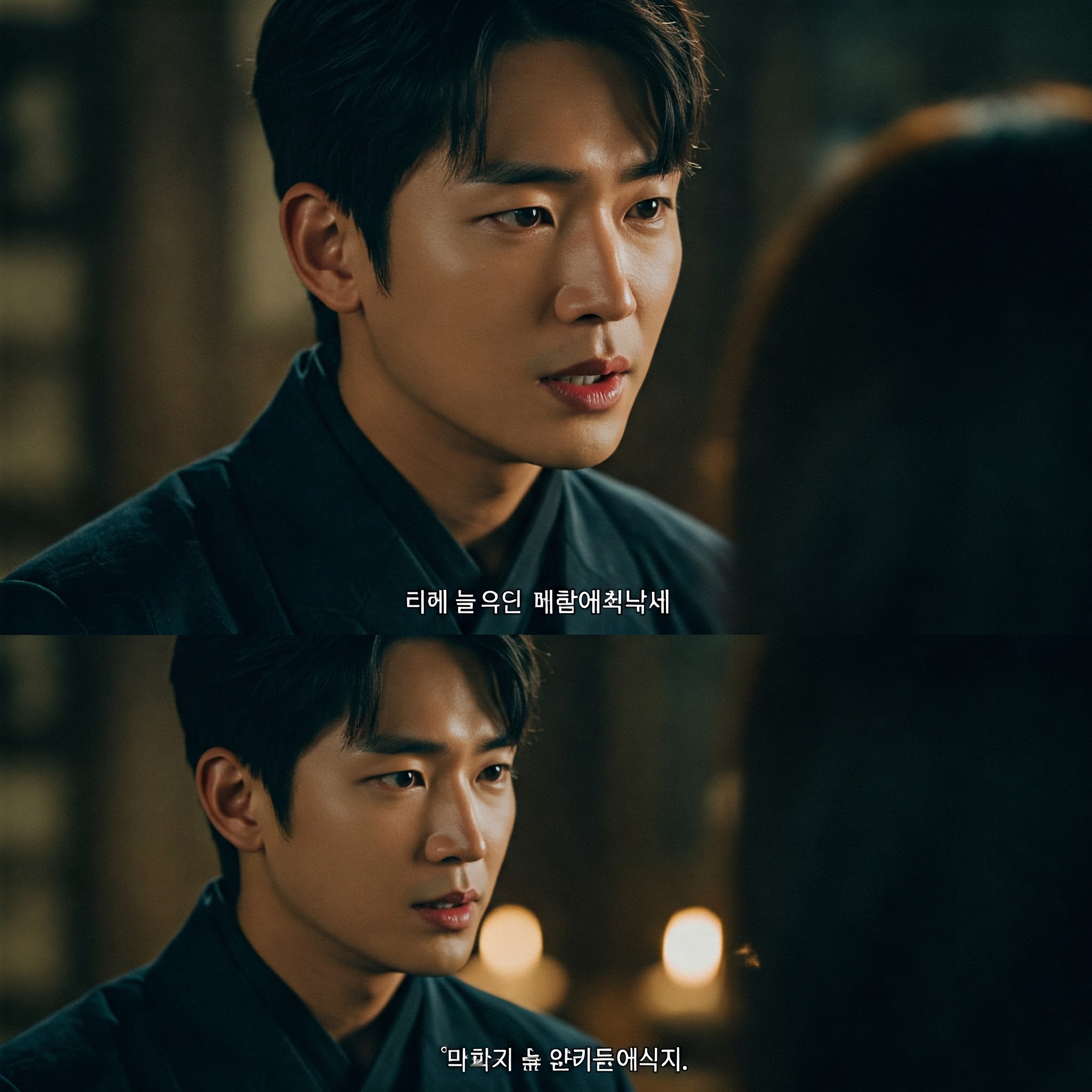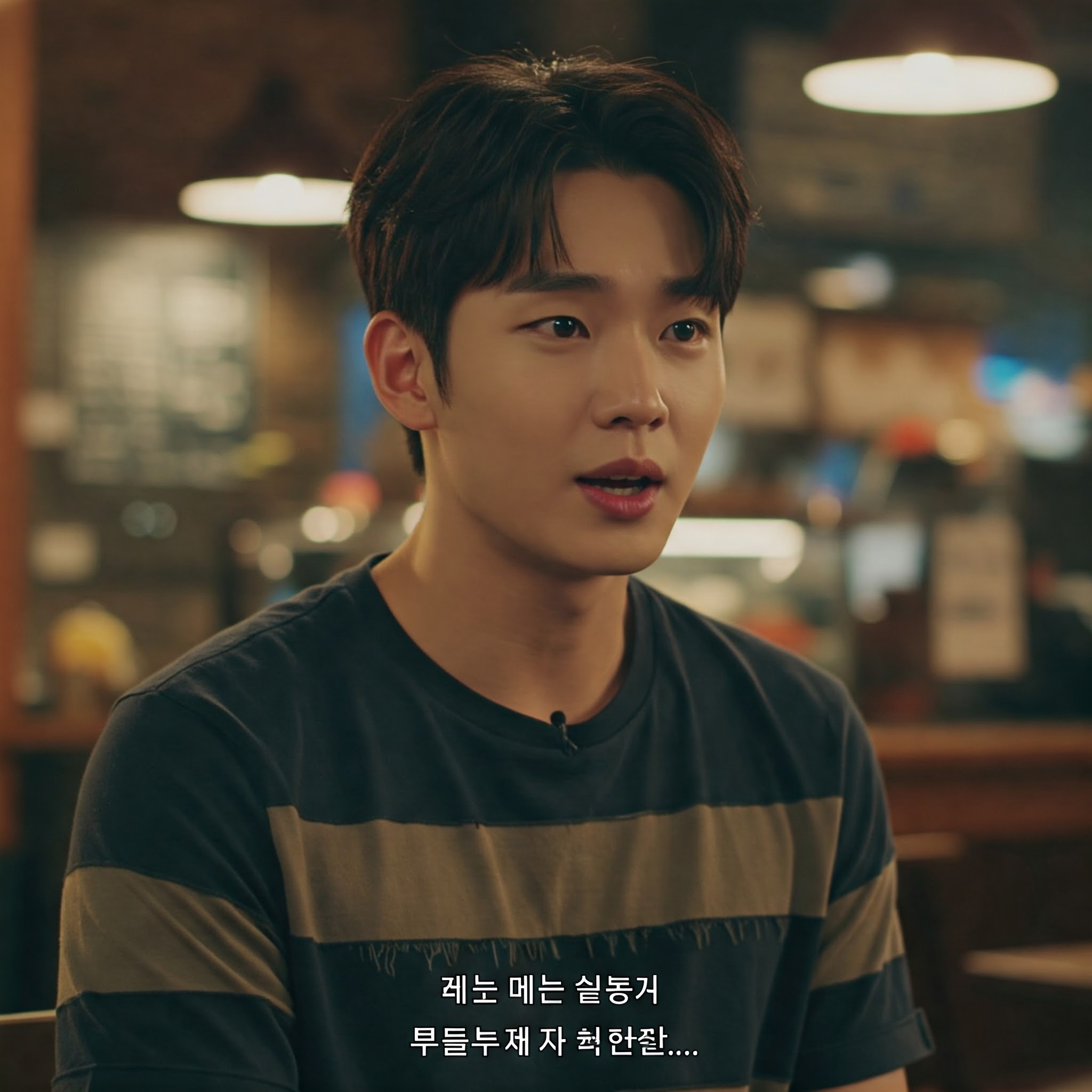Top 10 Korean Words and Phrases Every K-Drama Fan Must Know

Introduction: How K-Dramas Help in Learning Korean

Korean dramas, or K-dramas, have taken the world by storm, captivating audiences with their engaging storylines, emotional depth, and unforgettable characters. Beyond entertainment, K-dramas offer an excellent way to immerse yourself in the Korean language and culture. If you're a K-drama fan, you've probably found yourself picking up a few Korean words and phrases along the way!
Learning Korean through K-dramas is fun, effective, and natural. The more you listen, the more you recognize familiar words and phrases. To help you get started, we've compiled 10 must-know Korean words and phrases that appear frequently in K-dramas, complete with pronunciations, example sentences, and cultural insights!
10 Must-Know Korean Words & Phrases from K-Dramas
1. 감사합니다 (Gamsahamnida) – Thank you
- Pronunciation: Gam-sa-ham-ni-da
- Example Sentences:
- "정말 감사합니다!" (Jeongmal gamsahamnida!) – "Thank you so much!"
- "도와줘서 감사합니다." (Dowajwoseo gamsahamnida.) – "Thank you for your help."
- Cultural Insight: In Korea, expressing gratitude is important. You'll hear this phrase in formal settings, especially between characters showing deep appreciation.
2. 보고 싶어 (Bogo sipeo) – I miss you
- Pronunciation: Bo-go shi-peo
- Example Sentences:
- "너가 보고 싶어!" (Neoga bogo sipeo!) – "I miss you!"
- "매일 보고 싶어." (Maeil bogo sipeo.) – "I miss you every day."
- Cultural Insight: This phrase is often used in romantic dramas when lovers are separated, making it an emotionally powerful phrase in Korean culture.
3. 아직도 (Ajikdo) – Still / Not yet
- Pronunciation: Ah-jik-do
- Example Sentences:
- "아직도 너를 좋아해." (Ajikdo neoreul joahae.) – "I still like you."
- "아직도 기다리고 있어." (Ajikdo gidarigo isseo.) – "I'm still waiting."
- Cultural Insight: This phrase is frequently used in dramatic confessions, especially when a character hasn't moved on from a past love.
4. 진짜 (Jinjja?) – Really? / Seriously?
- Pronunciation: Jin-jja
- Example Sentences:
- "진짜?" (Jinjja?) – "Really?"
- "진짜야!" (Jinjja-ya!) – "It's true!"
- Cultural Insight: Koreans use "진짜?" casually in daily conversations to express surprise or disbelief.

5. 무섭해 (Museopae) – I'm scared
- Pronunciation: Mu-seop-eh
- Example Sentences:
- "나 무섭해!" (Na museopae!) – "I'm scared!"
- "혼자 있으면 무섭해." (Honja isseumyeon museopae.) – "I'm scared when I'm alone."
- Cultural Insight: This phrase is common in thriller or horror dramas when characters express fear.
6. 화나 (Hwana) – I'm angry
- Pronunciation: Hwa-na
- Example Sentences:
- "나 화나!" (Na hwana!) – "I'm angry!"
- "너 때문에 화나!" (Neo ttaemune hwana!) – "I'm angry because of you!"
- Cultural Insight: Expect this phrase in heated arguments or confrontations in dramas.
7. 믿어 (Mideo) – Believe me
- Pronunciation: Mi-deo
- Example Sentences:
- "나를 믿어!" (Nareul mideo!) – "Believe me!"
- "거짓말 아니야, 믿어줘!" (Geojitmal aniya, mideojwo!) – "I'm not lying, please believe me!"
- Cultural Insight: Used in intense moments when a character tries to prove their sincerity.
8. 좋아해 (Johahae) – I like you
- Pronunciation: Jo-ha-hae
- Example Sentences:
- "너 좋아해." (Neo johahae.) – "I like you."
- "진짜 좋아해." (Jinjja johahae.) – "I really like you."
- Cultural Insight: A classic confession phrase in romantic K-dramas!
9. 본인이야 (Bonin-iya) – It's me
- Pronunciation: Bon-in-i-ya
- Example Sentences:
- "본인이야." (Bonin-iya.) – "It's me."
- "내가 본인이야!" (Naega bonin-iya!) – "I am the one!"
- Cultural Insight: Used in dramatic moments when a character reveals their true identity.
10. 한번도 (Hanbeon-do) – Not even once
- Pronunciation: Han-beon-do
- Example Sentences:
- "한번도 사랑을 해본 적 없어." (Hanbeon-do sarangeul haebon jeok eopseo.) – "I've never been in love before."
- "그를 한번도 믿은 적 없어." (Geureul hanbeon-do mideun jeok eopseo.) – "I never trusted him."
- Cultural Insight: Often used in crime and mystery dramas.
How to Practice These Phrases in Daily Conversation

- Repeat & Imitate: Watch dramas with subtitles and repeat phrases aloud.
- Use in Daily Life: Greet friends with "Annyeong!" instead of "Hello."
- Shadowing Technique: Speak along with actors to perfect pronunciation.
- Chat with Korean Friends: Join language exchange platforms like HelloTalk or Tandem.
Conclusion
Learning Korean through K-dramas makes the process engaging and enjoyable. By familiarizing yourself with these 10 essential phrases, you'll not only enhance your viewing experience but also take a big step towards mastering the language!
The more you listen, repeat, and use these phrases in daily life, the faster you'll gain confidence in speaking Korean. Whether you're practicing by repeating lines from your favorite dramas, chatting with fellow K-drama fans, or even taking structured lessons, every step brings you closer to fluency.
If you're serious about learning Korean beyond just K-dramas, consider diving into grammar, sentence structure, and pronunciation practice. Pairing entertainment with structured learning will make your journey more effective and rewarding.

